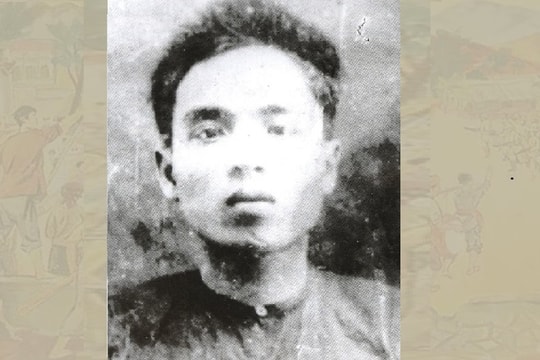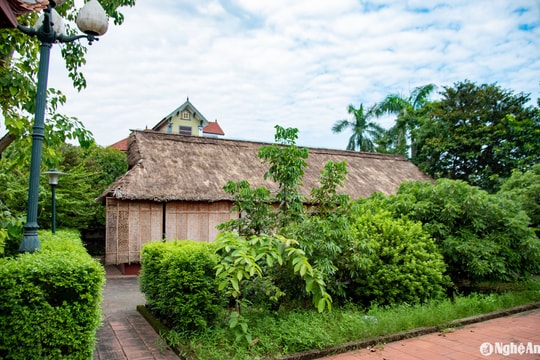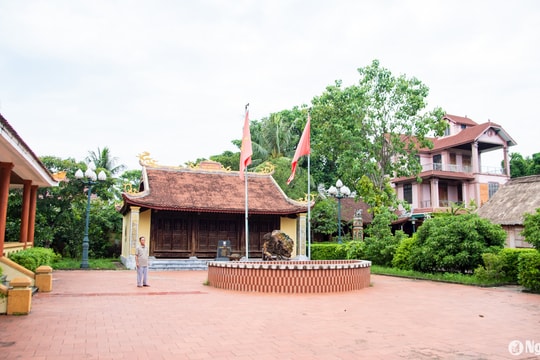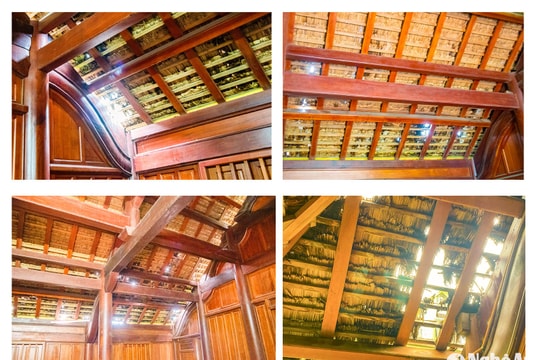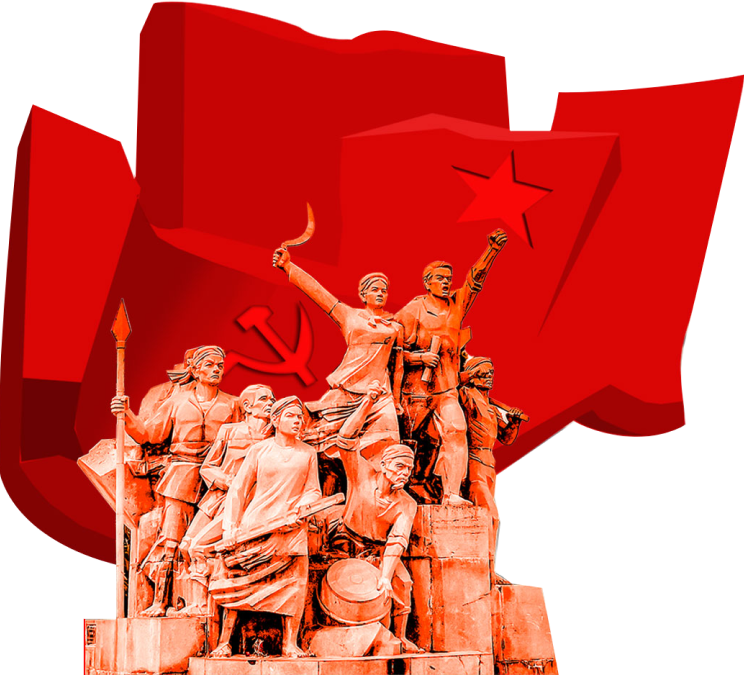Nguyen Duy Trinh - an outstanding son of his homeland Nghe An
(Baonghean) - Commenting on diplomat Nguyen Duy Trinh, General Vo Nguyen Giap once said: "Mr. Nguyen Duy Trinh is a leader with a modest, united, calm, concrete, meticulous style, a serious working style, saying what he does, and valuing the connection between theory and practice."
"The Sea is full of ghosts and gods"
Co Dan village nestled on the Lam bank, on the afternoon of May 20, 1965 (April 20, At Ty) was writhing under a devastating bomb attack, killing 48 civilians, injuring dozens of others, turning the village into a blank area, and forcing all residents to leave the village to find a way to live... In the summer of 1965, at the Ky Dung Ran evacuation site, my grandmother, Nguyen Thi Thep (1893 - 1981), had been in darkness for decades, but when she heard the VTV announce the name of Nguyen Duy Trinh - Minister of Foreign Affairs, her eyes seemed to light up again. That afternoon, my grandmother told me the story of "the eldest brother Bien, who appeared and disappeared like a ghost".
Mr. Nguyen Dinh Tiep and his wife Hoang Thi Luu (also known as Mrs. That Xu) gave birth to Nguyen Dinh Bien as their eldest son. Mr. Nguyen Dinh Tiep was my uncle's brother, my grandmother was my uncle's sister, belonging to the Nguyen Dinh family - Thuong Xa - Nghi Hop. Mr. Nguyen Duy Trinh called my grandmother O (aunt).

Nguyen Duy Trinh - excellent diplomat.
Since the time Nghe An was terrorized by the French, Bien and the patriotic soldiers in the area were secretly protected and sheltered by my maternal family and the villagers of Co Dan. So after more than thirty years, even though he had become Deputy Prime Minister and Minister of Foreign Affairs, in the minds of my maternal grandmother and the elders of the village, Mr. Nguyen Duy Trinh was still called Bien.
Nguyen Duy Trinh's birth name is Nguyen Dinh Bien, born on July 15, 1910 in Co Dan village, Dang Xa commune, now Phuc Tho commune, Nghi Loc district, Nghe An province. He was a former member of the Politburo (1956 - 1976), former Deputy Prime Minister and Minister of Foreign Affairs (1965 - 1980). He died on April 20, 1985 in Hanoi, at the age of 76.
Coming from a farming family, Bien inherited the tradition of patriotism early on. In 1927, he participated in the patriotic student movement in Vinh town. In 1928, he joined the Tan Viet Party - a predecessor of the Communist Party of Vietnam. At the end of November 1928, he was working for the Tan Viet Party in Dakao, Saigon (now District 1, Ho Chi Minh City) when he was arrested by the French. Because he was not yet 18 years old, he was imprisoned by the enemy in a juvenile prison and sentenced to 18 months in prison. After 8 months in prison, he was deported to his hometown.
From May 1930 to May 1931, the Soviet movement developed strongly in Nghi Loc district, the French colonialists increased arrests and hunts, hundreds of patriotic soldiers were killed, dozens of villages were destroyed. On September 13, 1931, the Nghi Loc District Party Committee was surrounded, a number of officials of the Regional Party Committee and District Party Committee were captured by the enemy, and Party organizations suffered heavy losses. In that situation, Nguyen Dinh Bien proactively connected with a number of comrades who were lucky to escape terror. After presiding over the establishment of the District Party Committee's Executive Committee to restore and develop the movement in Nghi Loc from the midst of blood and fire, he was elected by his comrades as Secretary of the Nghi Loc District Party Committee.
Bang Nguyen was Mrs. That Xu's younger brother. He was a lackey for the French. One day, Nguyen led French soldiers and their lackeys to suddenly surround Co Dan village. They blocked every corner and searched all the houses. That day, Bien was in the room and couldn't get out in time. In a dilemma, Mrs. That Xu immediately pressed her son's head down on the floor and calmly sat on a chair so that her skirt covered his body. Just as Bang Nguyen led the soldiers into the house to search, Mrs. That Xu was still sitting sewing on the porch and coldly said to him:
- He disappeared without a trace, where is he at home for you to look for him?
After that meal, the villagers of Co Dan whispered that Bien had the power of invisibility to escape the large-scale siege. But not long after, on December 18, 1932, Nguyen Dinh Bien was captured by the enemy and exiled to notorious prisons such as Vinh, Kon Tum, Con Dao...
Released from prison in May 1945, Nguyen Dinh Bien participated in the uprising in Vinh and Hue in August 1945. He successively held the positions of Standing Committee of the Central Region Party Committee, Vice Chairman of the Central Region Administrative Committee. In 1949, he was Secretary of the Inter-Zone V Party Committee, Chairman of the Central Region Resistance Committee. At the Second Party Congress (March 1951), Nguyen Duy Trinh was elected to the Party Central Committee; in 1954, he was Chief of the Central Office.
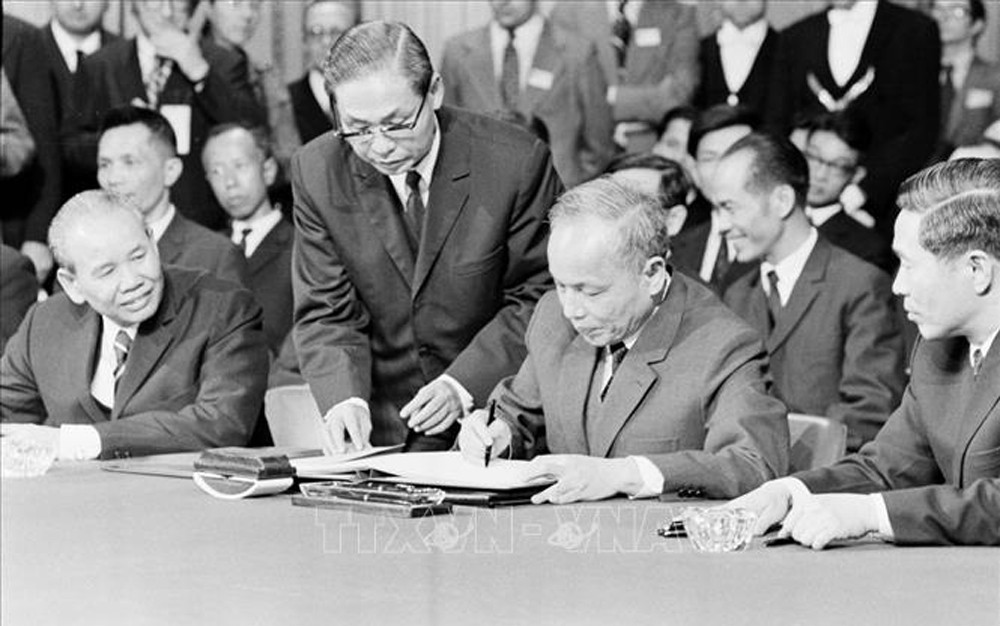 |
| Comrade Nguyen Duy Trinh signed the Paris Agreement on Vietnam. Photo: VNA |
Excellent commander on the diplomatic front
The land of Co Dan - Phuc Tho gave birth to and nurtured many famous people. From the rich tradition of patriotism of his family - clan - hometown, Nguyen Dinh Bien soon consciously cultivated his revolutionary moral character.
In 1955, Mr. Trinh was elected to the Secretariat; in 1956, he was a member of the Politburo; in 1958, he was Chairman of the State Planning Commission. At the 3rd Party Congress in 1960, he continued to be elected to the Politburo, holding the positions of Deputy Prime Minister and Chairman of the State Planning Commission, then Chairman of the State Science Commission (from 1963); in April 1965, he was Deputy Prime Minister and Minister of Foreign Affairs.
Since 1965, he was appointed Minister of Foreign Affairs. Nguyen Duy Trinh has always demonstrated the stature of an excellent diplomat. General Vo Nguyen Giap once commented on him: "In diplomatic work, he, together with Prime Minister Pham Van Dong, proposed correct and creative foreign policies... Through foreign affairs, he has shown himself to be an excellent diplomat of our Party and State." In his position as Minister of Foreign Affairs, he completely realized President Ho Chi Minh's teaching of "being unchanging, responding to all changes". As a diplomat who had traveled around the world, he overcame intellectual battles for the purpose of uniting and gathering international forces to understand Vietnam correctly, helping and supporting Vietnam in fighting the US. He left his mark on the international arena as a profound diplomat whose highest goal was peace, the rights and legitimate interests of the Fatherland and the Vietnamese people.
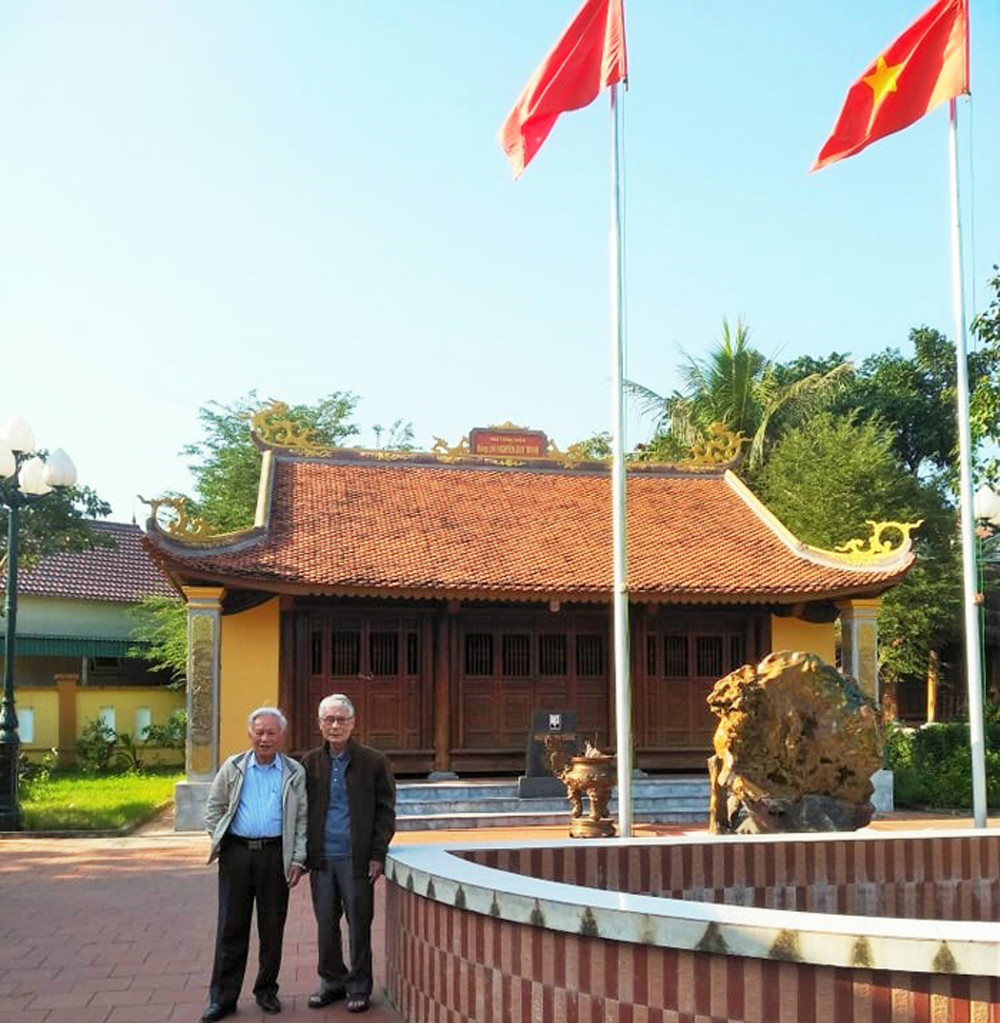 |
| Memorial site of diplomat Nguyen Duy Trinh in hamlet 10, Phuc Tho commune (Nghi Loc). Photo: Giao Huong |
After the country was reunified, Prime Minister Pham Van Dong and Foreign Minister Nguyen Duy Trinh proposed that the Politburo expand neighboring relations with countries in the region. In December 1976, the 4th Party Congress continued to elect Mr. Nguyen Duy Trinh to the Party Central Committee and the Politburo, to the Central Secretariat, and continued to hold the position of Deputy Prime Minister and Minister of Foreign Affairs until 1980. In 1982, at the 5th Party Congress, he continued to be elected to the Central Committee. And no matter what position he was assigned to, he still maintained his diligence, simplicity, and love for the people. At 76 years old, 57 years of Party membership, Nguyen Duy Trinh belongs to the generation of revolutionary senior cadres with nearly 60 years of continuous dedication to the Fatherland. His name was used as the name of a street in Vinh city, Ho Chi Minh city. On the occasion of the 100th anniversary of his birth (July 15, 2010), a high school in Nghi Loc district was honored to be named Nguyen Duy Trinh High School.

